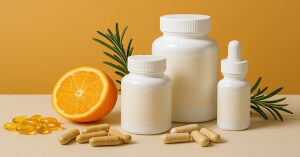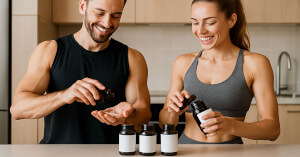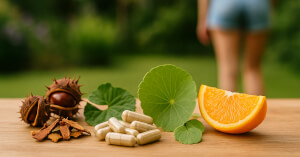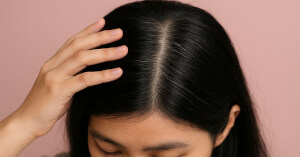
Beef Liver for Skin: Can It Really Reverse the Signs of Aging?
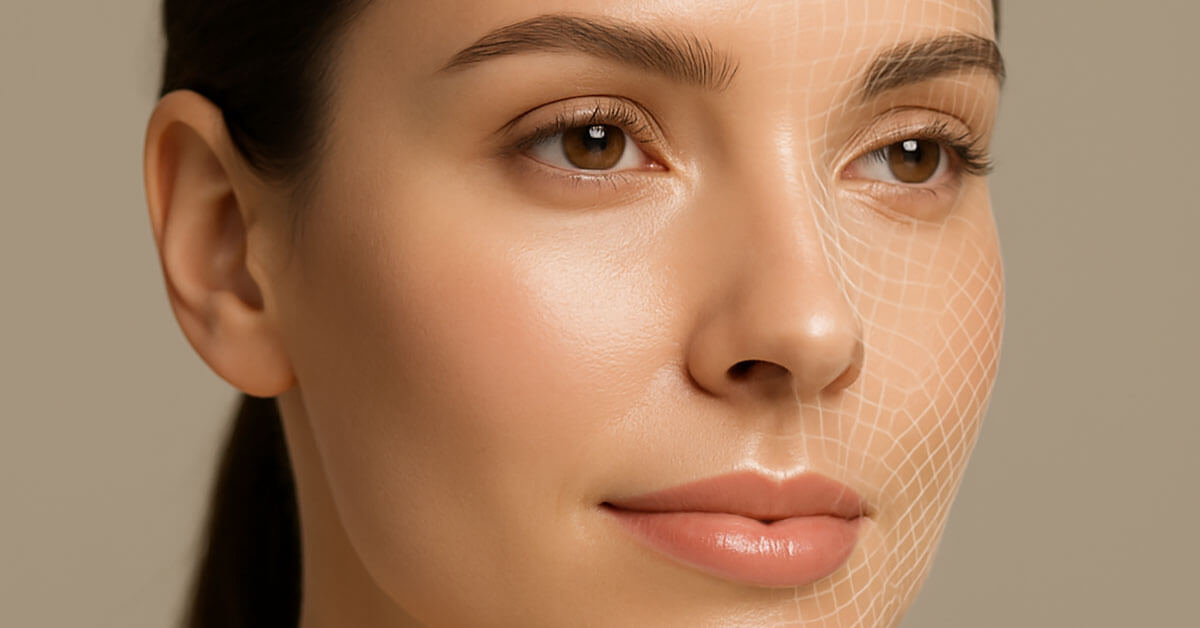
From TikTok glow-up trends to ancestral nutrition circles, beef liver has become the new buzzword in beauty-from-within. But can something as old-fashioned as liver really make your skin look younger?
Rich in retinol, copper, zinc, and peptides, this nutrient-dense superfood packs the same skin-loving nutrients that luxury serums try to mimic. Yet few people realize how powerful it can be when taken internally, not just for energy, but for collagen production, skin elasticity, and a healthy, natural glow.
Let's look closer at what science says about beef liver's potential to reverse the visible signs of aging, and whether it's worth adding to your beauty routine.
Why Your Skin Loves Retinol, and Beef Liver Is Full of It
Retinol (vitamin A) is the superstar of most anti-aging creams for a reason: it speeds up cell turnover, boosts collagen synthesis, and fades dark spots. What few realize is that Beef Liver is nature's most concentrated source of real, bioavailable retinol, far stronger than plant-based beta-carotene sources like carrots or sweet potatoes.
When consumed, this natural retinol works from within, supporting skin regeneration at the cellular level. Instead of applying synthetic retinoids on the surface, you're nourishing the dermis (the deeper layer of your skin where collagen is made) from the inside, helping new, firmer, and more even-toned skin cells rise to the surface.
📊 Clinical Evidence: A comprehensive review in Clinical Interventions in Aging shows that topical retinoids (retinol, tretinoin) stimulate collagen production and improve fine wrinkles in photoaged skin. For nutrition context, a 2021 review notes that vitamin A from animal sources — including liver — supports fibroblast activity, collagen/elastin synthesis, and overall skin structure.
Collagen Support and Skin Elasticity
Beef liver also provides amino acids like glycine and proline, the very building blocks of collagen. Alongside copper and zinc, these nutrients help maintain the integrity of skin's connective tissue. Regular intake can support better elasticity and firmness, which tend to decline with age and UV exposure.
While collagen powders work at the peptide level, beef liver nourishes the upstream process, helping your body make collagen naturally instead of just supplying fragments. It's like giving your skin factory the raw materials it actually needs to keep producing quality “youth fibers.”
Antioxidants That Fight Skin Damage
Beyond retinol, beef liver is loaded with antioxidants such as CoQ10, selenium, and glutathione precursors. These compounds help reduce oxidative stress, a key driver of skin aging. By neutralizing free radicals, they help prevent the breakdown of collagen and elastin, keeping your skin resilient and less prone to fine lines.
Vitamin B12 and folate in beef liver also play a subtle but important role in DNA repair and cell renewal, helping your skin recover faster from daily environmental stress.
Can It Really Reverse the Signs of Aging?
"Reverse" might sound dramatic, but research supports that improving nutrient density can visibly rejuvenate skin over time. Unlike cosmetic creams, nutrient-based interventions work more holistically, influencing everything from hydration to microcirculation and dermal thickness.
For some, the glow and firmness return within weeks. For others, it's about restoring the nutritional foundation for healthy skin aging. Either way, beef liver's blend of retinol, peptides, and minerals makes it one of the most potent "skin foods" nature offers.
Here are some of the visible skin benefits people often report after a few weeks of supplementing with beef liver:
- Better elasticity and resilience
- Firmer, smoother skin texture
- Softer appearance of deep wrinkles
- Reduction in fine lines and creases
- More even skin tone with less hyperpigmentation
- A naturally healthy glow from improved collagen and circulation
How to Add Beef Liver to Your Routine
Supplements vs. Whole Food
If the idea of eating liver doesn't appeal to you (and it doesn't to a lot of people!), freeze-dried beef liver capsules are an easy, odor-free alternative. They preserve the nutrients of raw liver while being convenient for daily use. Look for grass-fed sources with no additives or fillers.
How Often to Take It
Most people notice benefits from 2,000-3,000 mg per day of desiccated beef liver (equivalent to about one ounce of fresh liver). Because it's naturally rich in vitamin A, moderation is key.
✔️ Typical Dosage Range: 4-6 capsules daily (2,000-3,000 mg), or 1-2 servings per week of cooked beef liver. Avoid combining with other high-vitamin A supplements to prevent excess intake.
Should I Combine Beef Liver Supplements with Retinol Cream?
Both beef liver and topical retinol work on the same pathway: vitamin A. The difference is where they act. Beef liver delivers retinol internally, where it supports skin regeneration, collagen synthesis, and antioxidant protection. Retinol creams, on the other hand, act directly on the surface, increasing cell turnover and smoothing fine lines.
In moderate amounts, combining both can complement each other. Internal vitamin A helps your skin rebuild stronger tissue, while topical retinoids refine texture from the outside. But because beef liver is naturally high in preformed vitamin A, it's best not to overdo it, especially if you already use prescription-strength retinoids or take a multivitamin containing vitamin A.
💡 Tip & Warning: If you use a retinol or tretinoin cream, start beef liver capsules slowly (2-3 times a week) and watch for signs of dryness or sensitivity, these can indicate that your total vitamin A intake is getting too high.
Taking large amounts for extended periods can lead to hypervitaminosis A, a condition caused by excess vitamin A accumulation. Symptoms may include dry skin, fatigue, headaches, or sensitivity to sunlight. To stay safe, avoid combining high-dose liver supplements with other strong vitamin A sources or prescription retinoids. Always follow label directions and take regular breaks if supplementing long term.
Bottom Line
Beef liver isn't the prettiest food, but it's among the most nutrient-dense sources available. Its natural retinol, collagen precursors, and antioxidants support the skin's structure and help maintain elasticity and radiance over time.
So while it won't literally turn back the clock, it just might help your skin act a few years younger, from the inside out.
Frequently Asked Questions
Is beef liver good for skin and anti-aging?
Yes. Beef liver is naturally rich in retinol (vitamin A), copper, zinc, and peptides that support collagen formation, elasticity, and overall skin quality. It won't literally reverse aging, but it can help skin look smoother, firmer, and more even over time when used sensibly.
How long does it take to see results on skin?
Most people who respond notice subtle changes within 3-6 weeks: better glow, more even tone, and improved texture. Deeper changes in firmness and elasticity typically require 8-12 weeks of consistent use alongside good skincare, sleep, and nutrition.
Can beef liver replace collagen supplements?
They work differently. Collagen provides peptides directly; beef liver provides the vitamin A, minerals, and amino acids that help your body build collagen. Many people use one or the other; some stack both at moderate doses for complementary benefits.
Does beef liver help with acne or hyperpigmentation?
By improving vitamin A status and overall nutrient density, beef liver may support clearer, more even-looking skin. Individual responses vary, and breakouts have many causes. If you're acne-prone or dealing with melasma, combine nutrition with a consistent topical routine and sun protection.
Should I combine beef liver supplements with retinol or tretinoin cream?
It can be complementary if used moderately: internal vitamin A supports skin regeneration while topical retinoids smooth texture. Start low, monitor dryness or irritation, and avoid piling on other high-vitamin A supplements. If you use prescription tretinoin, stay conservative and ask your clinician if unsure.
What's a sensible daily dose for skin benefits?
Common ranges are 2,000-3,000 mg/day of freeze-dried beef liver (roughly 4-6 capsules), or 1-2 servings/week of cooked liver. Avoid combining with high-dose vitamin A products to reduce the risk of excess intake.
Is beef liver safe during pregnancy?
Beef liver is rich in preformed vitamin A (retinol), which is essential in small amounts but potentially harmful in excess during pregnancy. Very high intakes of retinol have been linked to birth defects. For this reason, pregnant women or those planning to conceive should avoid large servings of liver or high-dose liver supplements unless specifically advised by their healthcare provider.
Any tips to maximize results safely?
Pair with vitamin C-rich foods for collagen support, use daily SPF to protect gains, hydrate, and cycle off periodically if you supplement long term. Consistency matters more than high doses.
This article was originally published on Stackbb, your trusted source for science-based supplement guides.

